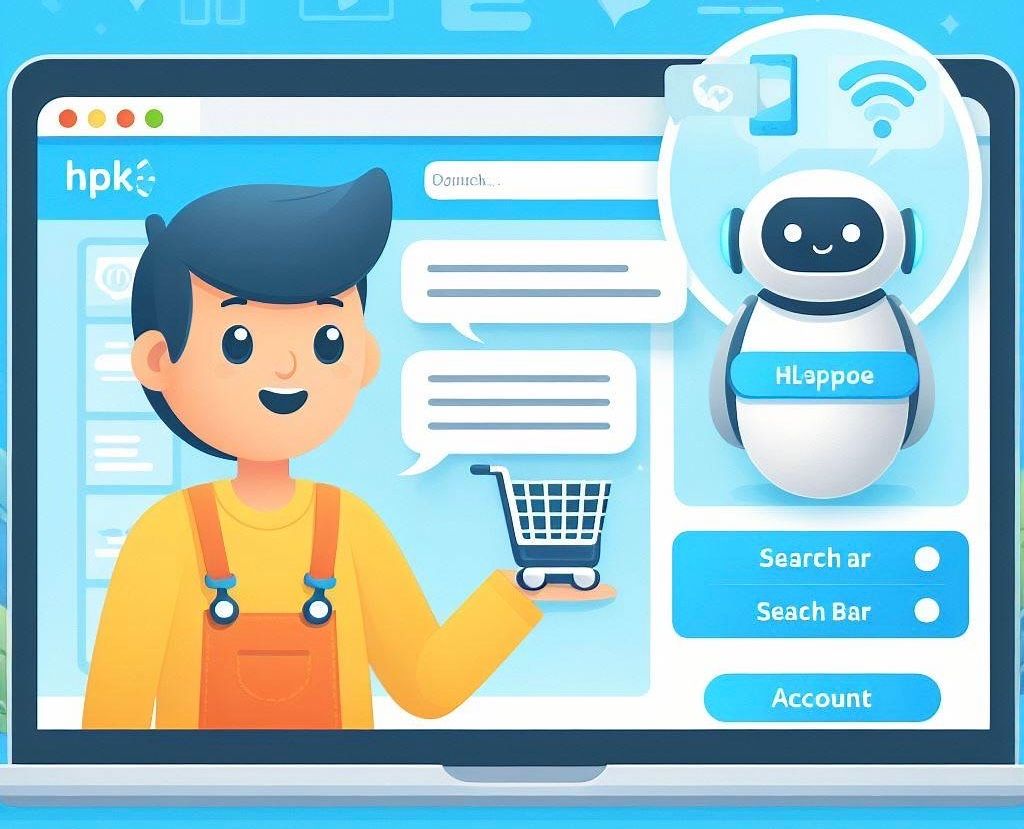Table of content
Conversational Chatbot Platform for E-commerce: Revolutionizing Online Shopping
Jan 03 2024
Table of content

In today's digital era, the e-commerce landscape is evolving at an unprecedented rate. As online shopping continues to gain momentum, businesses are constantly seeking innovative ways to enhance customer experiences and drive sales. One such game-changing solution is the conversational chatbot platform for e-commerce. By leveraging the power of artificial intelligence (AI) and natural language processing (NLP), these platforms are revolutionizing online shopping, transforming how businesses interact with their customers. In this article, CX Genie will delve into the key features, use cases, considerations for choosing a conversational chatbot platform, as well as future trends and innovations in this exciting field.
Key Features of Conversational Chatbot Platforms for E-commerce
Conversational chatbot platforms for e-commerce boast a range of powerful features that enable seamless and personalized interactions with customers. These features include:
1. Natural Language Processing (NLP) Capabilities:
Chatbots equipped with NLP can understand and interpret user queries, allowing for more natural and human-like conversations.
2. Contextual Understanding and Memory:
Conversational chatbots can remember past interactions and maintain context, providing a seamless experience even in multi-turn conversations.
3. Machine Learning and AI Algorithms:
These platforms leverage machine learning algorithms to continuously improve their responses and adapt to evolving customer needs.
4. Integration with E-commerce Platforms and Systems:
Conversational chatbots can be seamlessly integrated with existing e-commerce platforms, enabling real-time inventory updates, personalized recommendations, and streamlined checkout processes.

5. Multichannel Support:
E-commerce chatbots can be deployed across various channels, including websites, mobile apps, and social media platforms, ensuring a consistent and cohesive customer experience.
Use Cases of Conversational Chatbot Platforms in E-commerce
E-commerce chatbot platforms have proven to be versatile tools with a wide range of applications in e-commerce. Some notable use cases include:
1. Product Recommendations and Personalized Shopping Assistance:
Chatbots can analyze customer preferences and browsing behavior to provide tailored product recommendations, enhancing the overall shopping experience.
2. Order Tracking and Shipping Updates:
Customers can easily inquire about their order status, receive shipment updates, and track their packages through conversational chatbots, reducing support inquiries and providing transparency.

3. Handling Frequently Asked Questions (FAQs):
Chatbots excel at addressing common customer queries, providing instant responses to frequently asked questions and freeing up human agents for more complex tasks.
4. Resolving Customer Complaints and Issues:
Chatbots can assist in resolving customer complaints by gathering relevant information, escalating issues when necessary, and providing initial troubleshooting steps.
5. Assisting with Returns and Exchanges:
Conversational AI chatbots can guide customers through the return or exchange process, ensuring a smooth and hassle-free experience.
Considerations for Choosing a Conversational Chatbot Platform for E-commerce
When selecting a conversational chatbot platform, businesses should take into account the following considerations:
1. Scalability and Flexibility:
The platform should be able to handle increasing customer demands and seamlessly scale as the business grows.
2. Customization and Branding Options:
The ability to customize and align the chatbot's personality, tone, and branding with the company's image is crucial for maintaining a consistent brand experience.
3. Integration Capabilities with Existing Systems:
Compatibility with existing e-commerce platforms, customer relationship management (CRM) systems, and other backend systems is essential for smooth operations and data synchronization.
4. Security and Data Protection Measures:
Robust security measures, including encryption and compliance with data protection regulations, are vital to safeguard customer information and instill trust.
5. Analytics and Reporting Features:
The platform should provide comprehensive analytics and reporting capabilities to track chatbot performance, customer interactions, and identify areas for improvement.
Future Trends and Innovations in Conversational Chatbot Platforms for E-commerce
The field of conversational chatbot platforms for e-commerce is constantly evolving, and several exciting trends and innovations are emerging, including:
1. Integration with Voice Assistants and Smart Home Devices:
Chatbots will seamlessly integrate with voice assistants, enabling customers to interact with them through devices like smart speakers, further enhancing convenience.
2. Advancements in Natural Language Processing and Understanding:
Continued advancements in NLP technology will enable chatbots to understand and respond to more complex and nuanced queries, delivering even more accurate and human-like interactions.

3. Expansion to New Communication Channels and Platforms:
Conversational chatbots will extend their reach beyond traditional channels, such as websites and apps, to emerging platforms like messaging apps and even augmented reality/virtual reality environments.
4. Improved Personalization and Customer Profiling:
E-commerce business chatbots will leverage enhanced data analytics and machine learning algorithms to develop a deeper understanding of individual customers, leading to highly personalized recommendations and experiences.
5. Embracing Multilingual and Multicultural Capabilities:
Conversational chatbots will become more adept at supporting multiple languages and understanding cultural nuances, enabling businesses to cater to a global customer base.
Conclusion
Conversational chatbot platforms are transforming the way businesses engage with customers in the e-commerce realm.These intelligent platforms offer a range of features such as natural language processing, contextual understanding, and integration with e-commerce systems. They can be utilized for various use cases, including product recommendations, order tracking, customer support, and returns processing. When selecting a conversational chatbot platform, businesses need to consider scalability, customization options, integration capabilities, security measures, and analytics features. Looking towards the future, we can expect integration with voice assistants, advancements in natural language processing, expansion to new communication channels, improved personalization, and multilingual capabilities. As conversational chatbot platforms continue to evolve, businesses that embrace this technology will gain a competitive edge in revolutionizing the online shopping experience.
Related articles
No data



